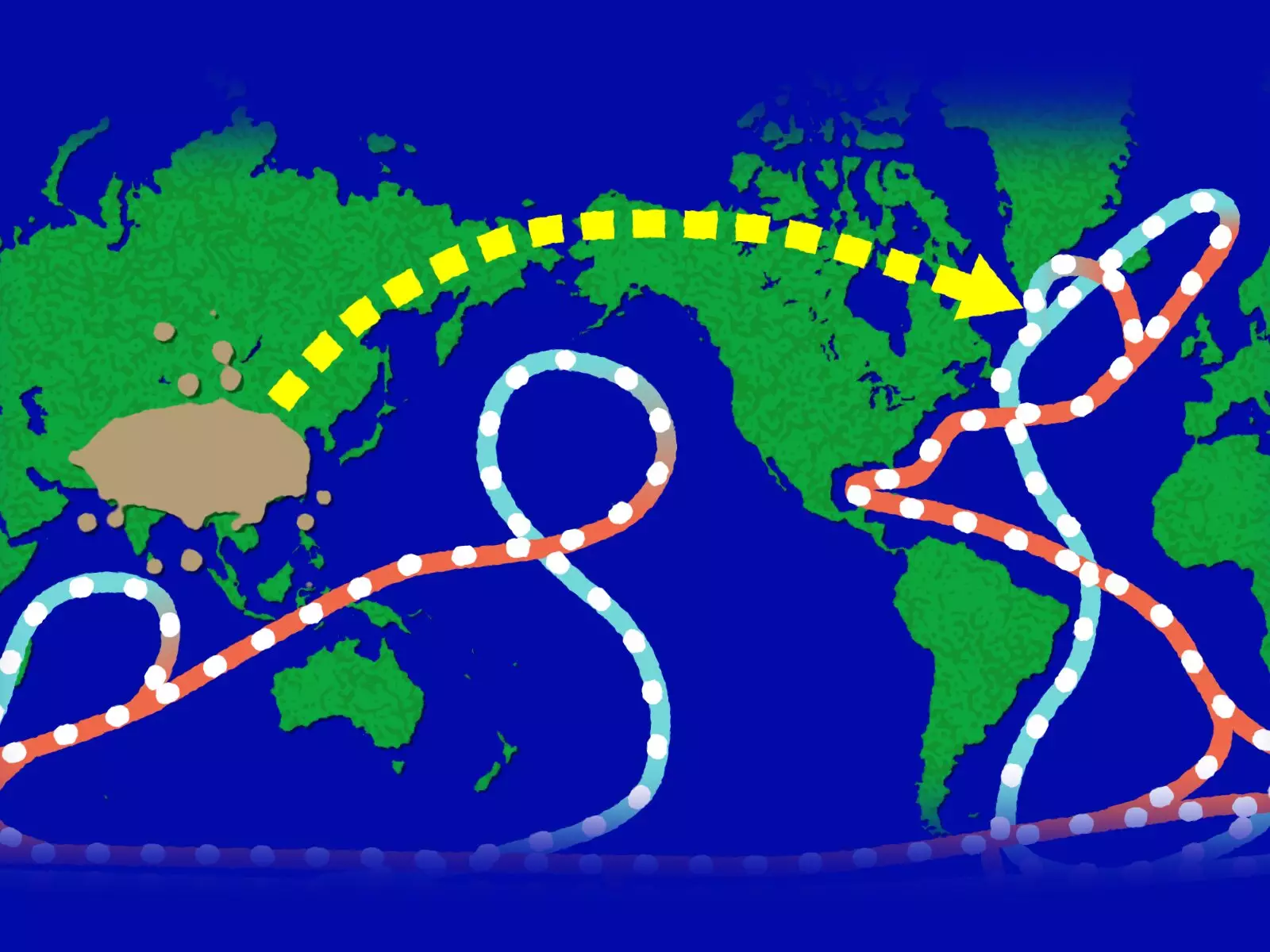The Atlantic Meridional Overturning Circulation (AMOC) has been a subject of great interest since its monitoring began in 2004. Recent research published in Nature Communications has shed light on the role that Asian aerosols play in affecting the AMOC. This paper, titled “Increased Asian Aerosols Drive a Slowdown of Atlantic Meridional Overturning Circulation,” highlights the influence of aerosols from Asia on this complex system of ocean currents. Jian Lu, an Earth scientist at the Pacific Northwest National Laboratory (PNNL), co-authored the study with a team of international researchers.
The AMOC is often likened to a conveyor belt, as it transports warm water north and cold water south in the Atlantic Ocean. This circulation system plays a crucial role in regulating the climate of surrounding continents by cycling warm and cold water layers. Lu describes the AMOC as a vital component of Earth’s climate, akin to the heating system in a home. Any slowdown or disruption in the AMOC could have significant implications for global climate patterns.
Impact of Asian Aerosols
Lu, along with lead author Fukai Liu and other collaborators, delved into the effects of anthropogenic aerosols on the AMOC. While previous studies have linked greenhouse gas emissions from North America and Europe to the slowdown of the AMOC, the role of Asian aerosols had remained unclear. The team’s findings demonstrate that aerosols originating from Asia contribute to the sluggishness of the AMOC.
Research Findings
Using climate model simulations and data from various projects like the Detection and Attribution Model Intercomparison Project (DAMIP) and the Aerosol Chemistry Model Intercomparison Project (AerChemMIP), the researchers were able to pinpoint the impact of Asian aerosols on the AMOC. They discovered that these aerosols, produced from human activities such as transportation and coal combustion, have a cooling effect on the Earth’s climate, ultimately slowing down the AMOC.
The implications of this study are twofold. Firstly, reducing emissions of Asian anthropogenic aerosols could not only improve local air quality but also help stabilize the AMOC. Secondly, this research underscores the interconnectedness of global climate systems and the far-reaching effects of human activities on ocean currents. As scientists continue to unravel the mysteries of the AMOC, it becomes increasingly evident that our actions on land can have profound consequences for the oceans and the climate at large.
The study on the impact of Asian aerosols on the Atlantic Meridional Overturning Circulation represents a significant advancement in our understanding of oceanic systems and their response to anthropogenic influences. By shedding light on the role of aerosols from Asia in affecting the AMOC, the researchers have opened up new avenues for further research and potential intervention strategies to mitigate the effects of human activities on ocean circulation patterns.


Leave a Reply